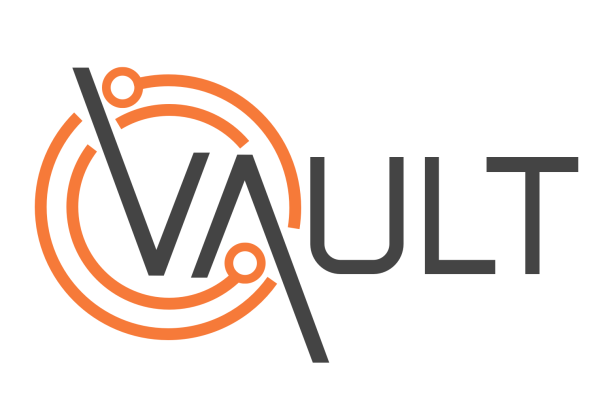- Tūhono home Hoki ki Tūhono
-
- Staff Directory
- Chief Executive Office Auckland International Office Corporate Services Finance Campus Services Functions and Catering Information Systems and Support Marketing, Communications and Engagement Learner Journey Academic Registry International Learner Services Te Punaka Ōwheo
- Learner Experience Academic Excellence Central Campus College of Community Development and Personal Wellbeing College of Engineering, Construction and Living Sciences College of Health College of Work Based Learning Open Education Resource/OERu Research and Postgraduate Studies Te Maru Pumanawa | College of Creative Practice and Enterprise
- Māori Development and Kaitohutohu Office People, Culture & Safety People and Culture Childcare Centre Te Ama Ako | Learning and Teaching Development Wellbeing and Safety Auckland Staff Directory Executive Office Academic Corporate Services Marketing and Business Development Human Resources Campus Quality and Programme Development
-
 Our people make a better world
Our people make a better world
We build the capabilities of individuals, organisations and communities and help them to realise their potential.
Staff Directory
-
- Tools
- Academic Integrity Declaration Form AIC applications dashboard Approved programmes Approved programme fees Centralised assessement repository Chemwatch Course evaluation and surveys CRM applications CRM customer service hub Delegations policy/process Disability and neurodiversity Dynamics 365 (CRM) EBS Ontrack EBS Report Email security personal portal Employment Matters / Solarworkplace / Performance reviews eTaxi eTV
- Financial variance reporting Hidden Disabilities Sunflower programme FCM travel intranet InPlace International entry requirements Knowledgebase articles Learner support dashboards Linkedin Learning Log a job with Marketing Login as an applicant Media consent form Microsoft 365 Moderation App Moodle OP Docs OP Docs - Publishing OP Image Libraries Performance Excellence Portal Pocket Lab (student healthcare) Product Evaluation Panel
- Policy Library Privacy Programme and course design/development Qualtrics XM RDS Remote access support portal Research Database Robertson Library Staff FAQs about graduation Status of Programmes Student intranet (Kāpehu) Study Abroad info for learners Taha Talks (videos for students) Tūhauora I Wellbeing resources Uniprint Vault Webexpenses Auckland tools
-
 Vault
Had an accident or near miss?
Log it here
Vault
Had an accident or near miss?
Log it here
-
- Communities
- Community AI Steering Committee Ally Network EBS Community of Interest EdTech Champions Health & Wellbeing Research Internal Evaluation Neurodiversity Professional Team Professoriate Proud@OP Student Support Website Advisory Group Web Champions Working under the Rainbow Project Learner Capability Trade Training Centre
- Committee Academic Committee Animals@OP Diversity and Equity Doctor of Professional Practice Committee Kaunihera Whakahaere - Leadership Council Internal Evaluation Learning & Teaching Leadership Team Library Committee Mental Health and Wellbeing Advisory Group Otago Polytechnic Board of Directors Pastoral Care Code Committee Programme Approvals Committee Research and Postgraduate Committee Research Ethics Committee Staff Subcommittee
- Think Tanks Mātauraka Our learners achieve educational success Pūtea Our financial success Tākata Our people, our team, our community Tiriti Our active commitment as a Treaty partner Tūroa Our commitment to be a sustainable and responsive organisation
-
 Create a community
Create a community
Do you have a community, committee or project that you'd like represented here?
Communities
-
- About OP
- Keep up to date All news All events All notices All blogs Share your info Create a news article Create an event Create a notice Create a blog
- Community and Partnerships Alumni and friends Education Foundation Operational information Academic calendar 2025 Academic calendar 2026 Current vacancies Dunedin campus map Our policies Topical FAQs
- Who we are About OP Commemorative sites Māori Strategic Framework OP merchandise Our history Our strategic priorities Pasifika Action Plan Pasifika Strategic Framework (2025-2030) Vision and Values Working for us OP job opportunities Wellbeing Calendar Working at OP
-
New Zealand: 0800 762 786
contact us
International: +64 3 477 3014
Combating decision fatigue and optimising decision-making in Information Technology (IT): The role of Artificial Intelligence (AI) in enhancing cognitive outcomes for IT professionals
Author: Palitha Angage
Supervisors: Olufemi Omisakin Jimmy Sun Indrapriya Kularatne
23 April 2025
Angage, P. (2025). Combating decision fatigue and optimising decision-making in Information Technology (IT): The role of Artificial Intelligence (AI) in enhancing cognitive outcomes for IT professionals [Master's thesis, Auckland International Campus, Otago Polytechnic]. Research Bank. https://doi.org/10.34074/thes.6826
Abstract
Decision fatigue has become a prevalent risk that influences information technology (IT) professionals in New Zealand, affecting the quality of decisions, productivity and overall well-being. This research explored how IT professionals in New Zealand experience decision fatigue and investigated how artificial intelligence (AI) could be strategically utilised to mitigate it. Decision fatigue has been acknowledged in various fields, such as healthcare and psychology, but how it affects IT professionals is under-explored, particularly in IT in New Zealand. As a supportive tool, AI and its usage are explored in different contexts to improve productivity and efficiency, but the specific AI usage to prevent decision fatigue of IT professionals remains unexplored in New Zealand. This research identified this as a gap and an opportunity to explore more in this context. This research aims to explore how IT professionals in New Zealand currently experience decision fatigue and how this can be mitigated using AI. Specifically, it explores; a) the primary challenges in decision-making that lead to decision fatigue among IT professionals, b) the potential benefits and challenges associated with the adoption of AI tools in decision-making processes, and c) how the adoption of AI tools influences their cognitive workload and contributes to the mitigation of decision fatigue.
The research adopted a qualitative interpretivist research design which included conducting semi-structured interviews with fifteen IT professionals who worked in different roles throughout New Zealand. The research used thematic analysis to identify major patterns and insights. In alignment with the research questions, the research first identifies the significant challenges IT professionals face which contribute to decision fatigue. These include cognitive overload, the pressure of multitasking in a time-constrained environment and high-stakes decision-making pressure. Secondly, the research identifies how IT professionals utilise AI in decision-making, such as in automating routine tasks and information processing to support decisions. It further looks at the key limitations of this, such as trust, security and lack of contextual understanding. Finally, strategic approaches were identified, such as automating time-consuming and routine tasks, delegating repetitive decisions, and reducing complexity by processing large amounts of data.
The research provides new perspectives about AI assistance for cognitive well-being through its reduction of decision fatigue in IT settings. The research presents AI-assisted task delegation as a method to maintain mental capacity for complex decision-making tasks. The research emphasizes the need for trust and contextual understanding and human-AI collaboration. The research results guide both decision fatigue theory development and practical AI implementation strategies that support sustainable IT professional workflows with ethical considerations.
Keywords
artificial intelligence, decision fatigue, Information Technology professionals, information processing, New Zealand
License
This thesis is publicly available under a Creative Commons Attribution-NonCommercial-NoDerivatives licence CC BY-NC-ND 4.0 International. https://creativecommons.org/licenses/by-nc-nd/4.0/
![]()